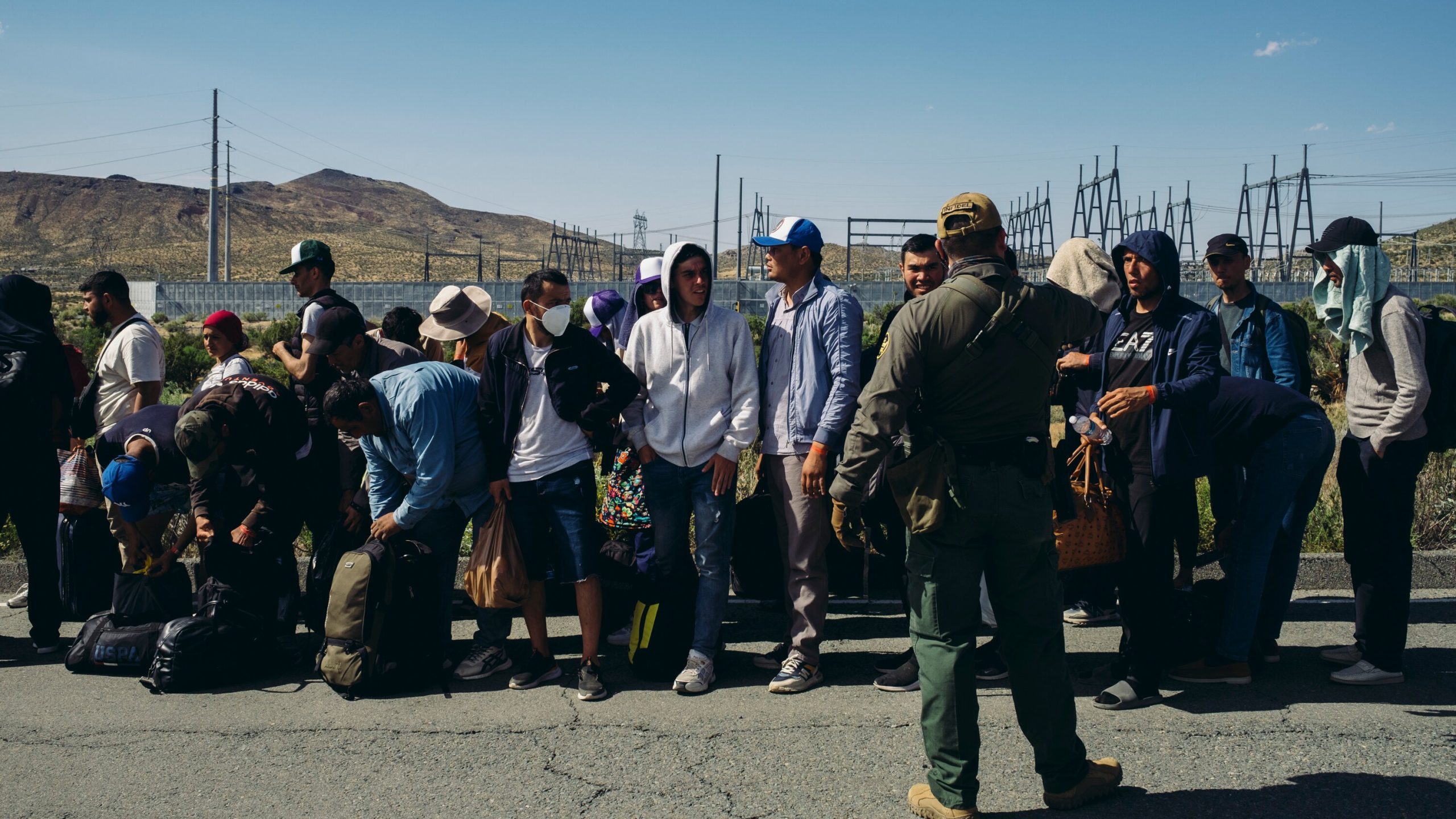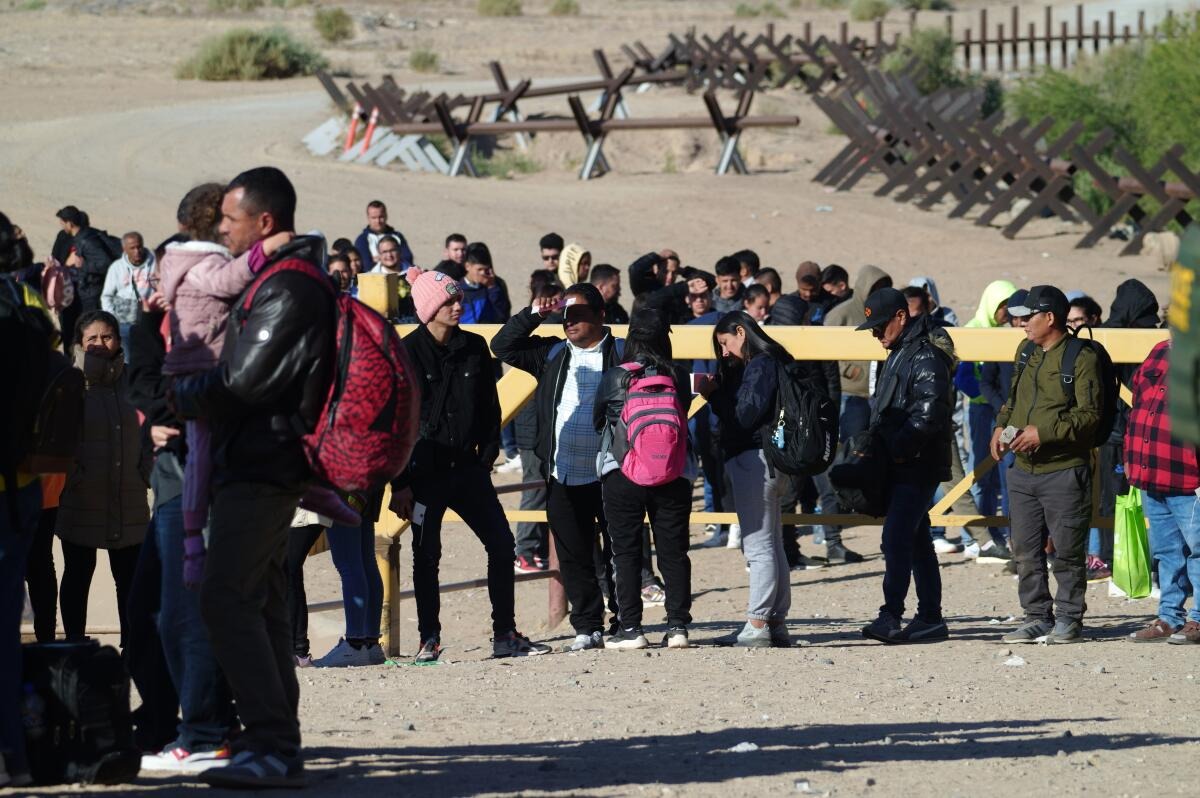The imminent impeachment vote targeting Homeland Security Secretary Alejandro Mayorkas has not only intensified divisions among his critics but has also sparked discord among some Republican members of Congress.
Mayorkas, perceived by many as a failure in his role as Homeland Secretary, is facing increasing scrutiny as the massive influx of migrants across the border poses a burgeoning economic and security threat to the nation.
My reservations regarding the two articles of impeachment, which pose their own risks to constitutional standards, are known. However, the focal point of concern extends beyond Mayorkas’s employment status; it revolves around the circumstances that prompted the House to seriously contemplate such an extreme remedy.

Migration Crisis Extends Beyond Mayorkas (Credits: The New York Times)
The roots of this crisis can be traced back over a decade, perhaps even earlier, to the Supreme Court’s decision in Arizona v. U.S.
In this case, a 5-3 majority ruled against a state’s attempt to enforce immigration laws, citing a perceived vacuum of federal action. The court declared that states were preempted or barred from taking such action, limiting independent state action in the realm of immigration.
Despite President Obama’s orders granting effective immunity to some migrants, he deported a significant number of illegal migrants. Questions arose about the future limits of enforcement, contemplating a scenario where a president abandons enforcement entirely.
This hypothetical now seems dangerously close to reality, with Mayorkas implementing President Biden’s policies, characterized by lenient enforcement and the dismantling of measures to deter unlawful migration.
Even some Democrats are now criticizing President Biden for lax policies and the failure to secure the border as hundreds of thousands pour into the country.
The states, facing desperate times, resort to desperate measures. Texas, for instance, declared unilateral action under Article I, Section 10, Clause 3 of the Constitution, asserting the right of self-defense against an actual invasion or imminent danger.
The current crisis, described as a practical invasion overwhelming towns and cities, presents a constitutional challenge. While the term “invasion” traditionally refers to a foreign power or army, the current situation blurs the lines between colloquial and constitutional meanings.
States have sought legal recourse to enforce laws, but the courts have often been inaccessible, denying standing to sue or granting sweeping authority over immigration. This has left Congress and states with limited means to compel law enforcement, even when provisions mandate such obligations.
The resort to impeachment is seen by many as the only viable option to force change. However, given President Biden’s support for Mayorkas’s actions, the removal of Mayorkas may not necessarily lead to policy or practice changes.
Congress shares responsibility in this complex situation, with the court’s decisions inviting Congress to pass laws giving people greater standing to sue the government or imposing more stringent conditions on spending and confirmations.
Yet, this crisis is a result of decades of court rulings expanding executive powers while limiting the ability to challenge those policies. Narrowing standing by the courts has restricted the challenge of unlawful or unconstitutional acts by the federal government.
States like Texas assert a breach of the original understanding with the federal government. The combination of sweeping preemption by the courts and diminishing enforcement has reduced states to mere observers to their own destruction.
The Biden administration’s approach, akin to claiming the authority to let fires burn, raises questions about whether states have reached a point of near-total disempowerment in dealing with the overwhelming influx across their borders. This contradicts the original federalism guarantees, where states were considered partners in the federal system, not mere bystanders.
The Constitution’s ratification might have faced challenges if states were informed of the extent to which they would become dependent on federal authority within their borders.
While the federal government continues to determine who enters the country, Congress attempts to impose limits on such actions through legislative mandates.
The ongoing crisis, fueled by open borders and closed courts, requires reconsideration of the constitutional framework. If justices won’t allow states to close their borders, they could, at the very least, open the courts to allow greater state representation and influence.























